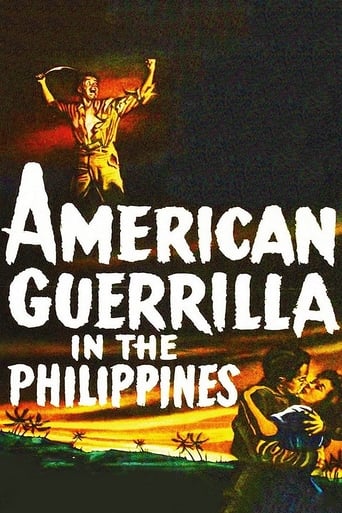Spikeopath
It's because it simply isn't very good, not painfully bad exactly, just a meanderingly paced time filler is all. Adapted by Lamar Trotti from a novel by Ira Wolfert, it stars Tyrone Power, Tom Ewell and Micheline Presle. The plot focuses on Chuck Palmer (Power) & Jim Mitchell (Ewell) who are stranded in the Philippine Islands waiting for Gen. Douglas MacArthur's return. As the impending surrender to the Japanese is unappealing to the guys, they attempt to escape the Islands. Only to be thwarted at every turn. So digging in they set about building a communications station to aid the guerrillas in the war effort. But the Japanese are closing in.First time viewers should not be fooled by some of the advertising catch phrases that proclaim this to be a rousing spectacle, or a great Pacific adventure. It's a sedate character driven story that's more concerned with flag waving jingoism than any adherence to action entertainment. Which would be fine if Trotti's script wasn't so unimaginatively bland. It's nicely shot at the actual locations by Harry Jackson, and Power is as ever, watchable; working from actual military experience helps of course. But with Ewell and Presle out of their depth {the former out acted by ants in one of the film's rare suspenseful moments} and the romantic sub-plot as tiresome as it pointless, this only serves to be a huge disappointment as a picture, and a blot on the directors CV. 4/10
Homer900
While it seems that the premise of this film was based on actual events in the Philippines, it comes across as a good actioner and little more. The movie is enhanced with location filming and, being only 5 years removed from the end of WWII, many of the people in this film served during that conflict. SPOILER: While the end of the movie is pure Hollywood, the cavalry, in the form of the U.S. Army and General MacArthur, riding to the rescue saved the real band of guerrillas, it makes for a tidy, yet abrupt ending to the movie. END SPOILER. For the poster that said the movie was to get the American public ready for Korea, your history is a bit off. The Korean War started in June of 1950, over 3 months before this movie was released and by the time it came out, we were very much involved; the amphibious landings at Inchon, South Korea came in September of 1950. This was not a propaganda movie per se, it was a look back at a time when Filipinos and Americans fought together to defeat the Japanese.
Brian
As an ex-military person, the discrepancy of rank in this movie is very glaring to me. Chuck Palmer is an Ensign (the lowest navy officer rank), but wears silver clusters (the rank of a Lt. Commander). At one point he is talking to an army Major and mentions that, although he is in the navy, they are of the same rank (the navy equivalent of an army major is a Lieutenant). It's an interesting movie to watch when you're up at 2 am and can't sleep. But, overall, I think this is a very sanitized version of the guerrilla fight in the Philippines during World War 2. If you've just tuned into the film at some parts, you'd think you were watching a documentary. An interesting trivia note: Jack Elam is the narrator in this film, but he also has a cameo in which he plays a con artist who bilks the locals of money in order to "buy guns and ammunition to fight the Japanese".
Marlburian
An entertaining film, filmed in the Philippines where the story is set and with some excellent local colour. And Micheline Presle, in one of her few non-French films, reminds me of a former girl-friend! At 37, Tyrone Power looks a little old. (Quinlan's notes that "when he returned from war service, his face had hardened into earnestness and gravity".) But he fills the starring role well.I feared early on that the film might descend into the cliché of "attractive woman among hardbitten men in trouble" when Power invites Presle to accompany his motley crew on their primitive craft, but luckily she declines (and she looks too classy to have had the experience of such craft that she claims).Some producers might have been tempted to make more of the American "phonies" (led by the ever impressive Jack Elam) Power observes collecting money from the villagers - a showdown between the good and bad Yanks, perhaps, but they're allowed to slink off. And I wondered if the woman with her head hidden as she denounced collaborators to the Japanese might later be identified and dealt with. Lesser films might have made more of these incidents in the interests of drama The end of the film was a bit unconvincing, with the Japanese soldiers withdrawing just as the survivors of Power's band look to be beaten; they had enough time to finish the job before getting away.


